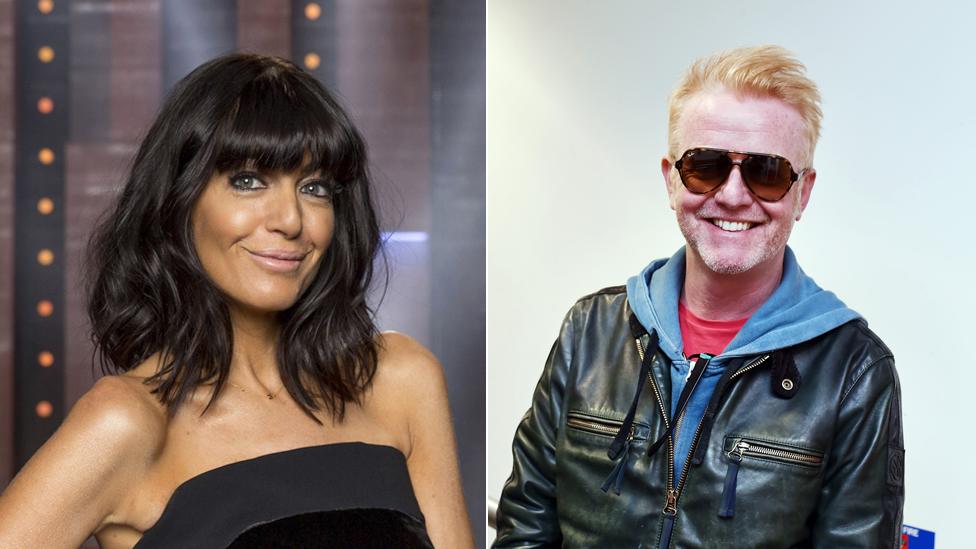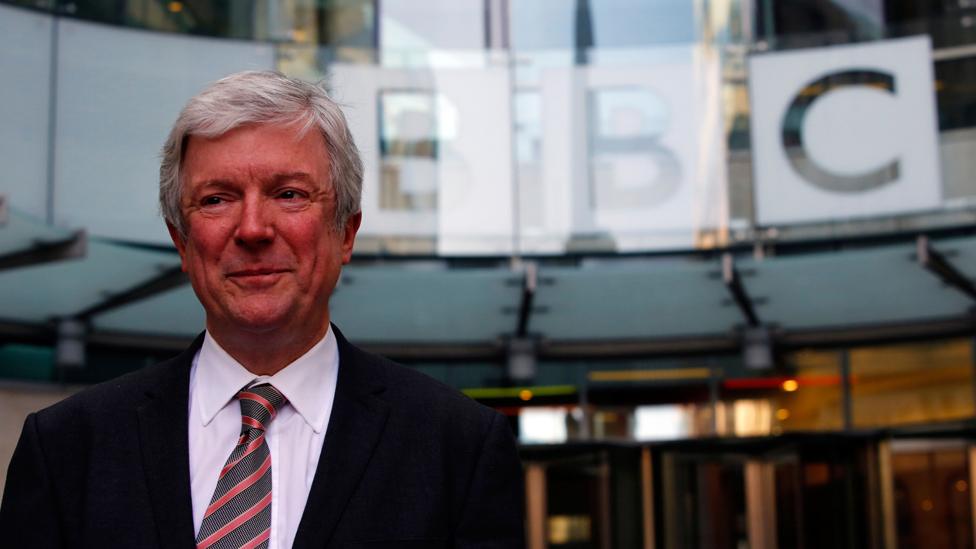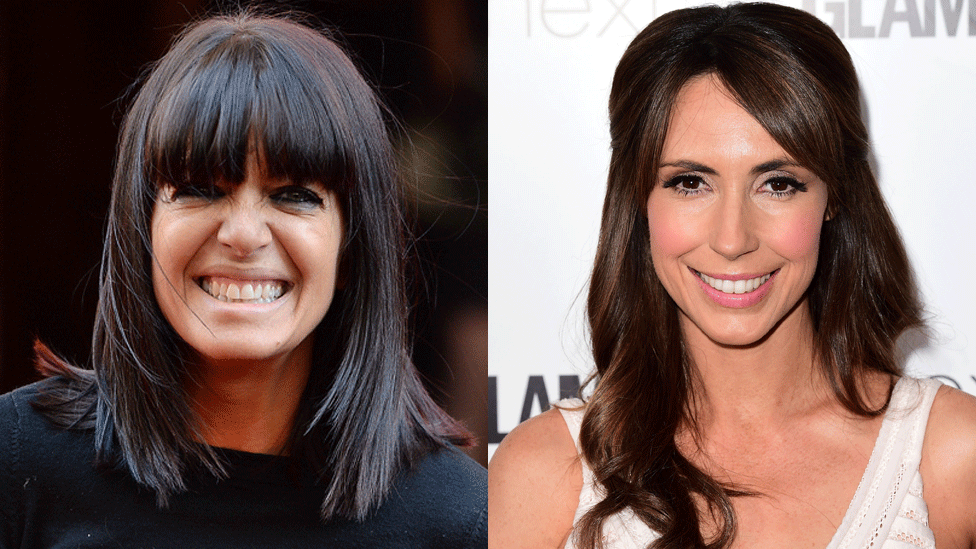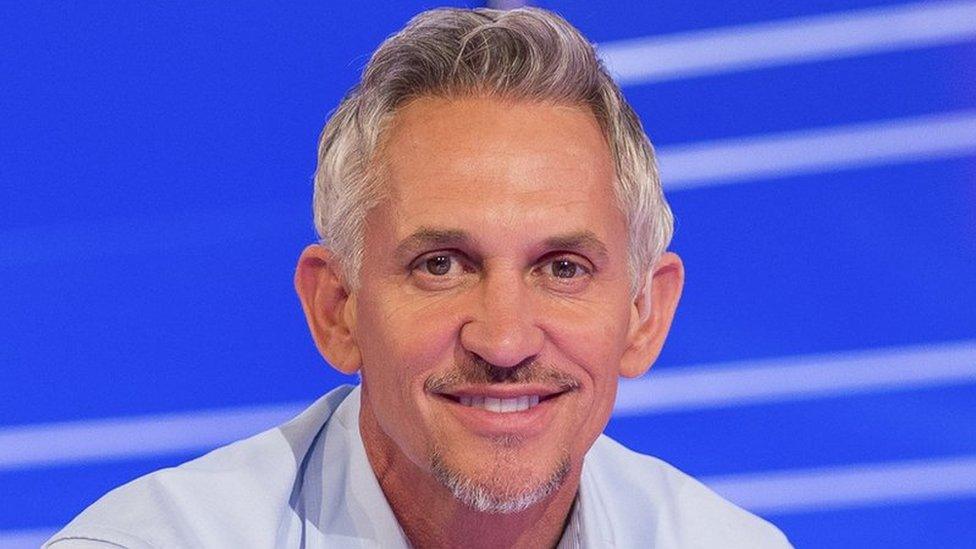Reality Check: The gender pay gap
- Published

Claudia Winkleman emerged as the best-paid woman but Chris Evans topped the list
BBC director general Lord Hall has said the BBC gender pay gap across the organisation is 10%, compared with an 18% gap across the UK as a whole.
His comments came as the BBC published for the first time the pay of stars earning £150,000 and more.
The figures reveal that about two-thirds of stars earning more than £150,000 are male, compared to one-third female, according to the BBC annual report.
The top seven earners in the list of the BBC's 96 best-paid stars are all male.
What is the gender pay gap?
The pay gap is the percentage difference between average hourly earnings for men and women.
Across the UK men earned 18.1% more than women in April 2016 according to the Office for National Statistics (ONS), external. This figure is calculated on a 1% sample of employees' jobs. It takes the median for men and women, which is the level of pay that half of people earn more than and half earn less than.
The pay gap isn't the same as equal pay. Equal pay - that men and women doing the same job should be paid the same - has been a legal requirement for 47 years.
As the following graph shows, the gap between men and women's earning for both full and part-time work has fallen from 27.5% in 1997 to 18.1% in 2016. If you only look at full-time workers the pay gap drops to 9.4%. For part-time workers the pay gap favours women, who now earn 6% more than men.

BBC figures
The numbers do not tell the whole story.
The list does not distinguish between people who are paid for doing multiple jobs within the BBC and those who are paid for just one.
The figures only include what the BBC pays its talent directly. So if a presenter is paid by an independent production company or by the BBC's commercial arm, this is not included.
Tony Hall's claim
Questioned by Mishal Husain on Radio 4's Today programme, director general Lord Hall said that, compared with an 18% gap in pay between genders across the UK, the BBC pay gap across the corporation was 10%, which will be audited in the autumn.
The BBC press office said that covered full and part-time employees. Reality Check asked for the part-time figures but the press office said that was all it had in terms of breakdown at the moment.

Tony Hall has committed to closing the BBC's pay gap
Gender pay gap in the workforce
The ONS provides some pay gap data, external for groups of occupations based on their annual earnings survey.
The following graph shows the gender pay gap by major occupation groups.
According to ONS definitions, elementary occupations require "a minimum general level of education". This category includes farm and postal workers, cleaners and security guards.
Skilled trades include jobs requiring a "substantial period of training", such as landscape gardeners, vehicle mechanics and TV engineers.
Associate professionals and technical occupations include jobs such as civil engineers technicians, paramedics and youth workers.
It is possible to look at jobs within these broad groups. For instance, the pay gap for the category "journalists, newspaper and periodical editors", which includes broadcast journalists, is 7.1%.
Likewise, for "artistic, media and literary occupations", which includes presenters, actors, producers and directors but also professions such as dancers and choreographers, the gap is just 2.7%.
Another way to look at the pay gap is by industry sector rather than by occupation. This shows that for the programming and broadcasting sector, looking at employees' hourly pay, the gender pay gap is 9.4%.
The 10% figure quoted by Lord Hall covers everyone employed by the BBC, so will include a wide range of jobs including technical staff, journalists, human resources and marketing.
By April 2018, all companies with 250 or more employees will have to publish figures showing average pay for men and women including any bonuses. This will reveal how widespread the gender pay gap is and will enable comparisons with other companies.
Meanwhile, Lord Hall has made a commitment to closing the pay gap in the BBC altogether. "I have said that by 2020 we will have equality between men and women on air and we will have the pay gap sorted out."



- Published19 July 2017

- Published19 July 2017
